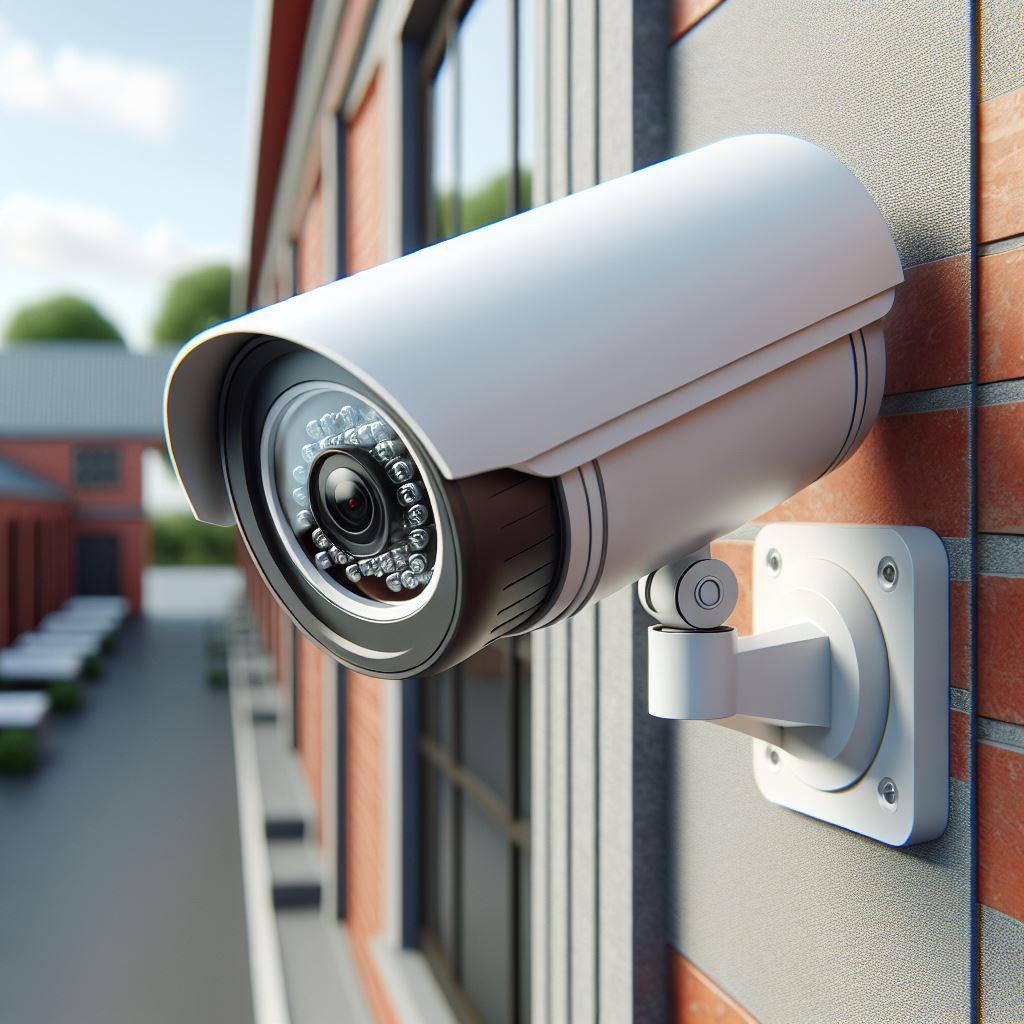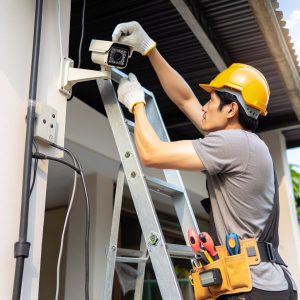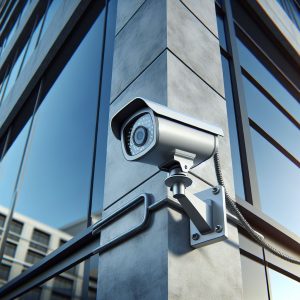Introduction
Closed-Circuit Television (CCTV) systems have become an essential tool for security and surveillance in various settings, including homes, businesses, and public spaces. While the primary focus often lies on the types of cameras and recording devices, there are several other crucial considerations that can significantly impact the effectiveness and efficiency of a CCTV system. This article explores these considerations in detail.
1. Lighting Conditions
Lighting plays a pivotal role in the performance of CCTV cameras. Different environments require different types of cameras to handle varying light conditions effectively:
- Low-Light Environments: Infrared (IR) or thermal cameras are ideal for areas with minimal lighting. IR cameras provide night vision capabilities, allowing them to capture clear images even in complete darkness.
- Well-Lit Areas: Standard cameras can be used in areas with sufficient lighting. Cameras with Wide Dynamic Range (WDR) are beneficial in environments with mixed lighting conditions, as they can handle glare and shadows effectively.
2. Camera Placement
Strategic placement of cameras is crucial to ensure maximum coverage and minimize blind spots:
- Entry Points: Cameras should be placed at all entry and exit points to monitor who is coming and going.
- High-Traffic Areas: Areas with high foot traffic, such as hallways and lobbies, should be monitored to capture any suspicious activity.
- Vulnerable Zones: Places like cash registers, safes, and storage rooms should have dedicated cameras to deter theft and monitor activities.
3. Resolution and Storage
The resolution of CCTV cameras affects the clarity of the footage and the storage requirements:
- High Resolution (4K or 8MP): Provides detailed images, useful for identifying faces and license plates. However, higher resolution increases storage needs.
- Balancing Resolution and Storage: It’s essential to balance the need for high-resolution footage with the available storage capacity. Motion-activated recording can help reduce data usage by recording only when movement is detected.
4. Legal and Privacy Considerations
Compliance with legal regulations and privacy laws is critical when setting up a CCTV system:
- Privacy Laws: Ensure cameras are not pointed at private areas such as restrooms or neighboring properties. Informing people about the presence of CCTV cameras can help maintain transparency and trust.
- Legal Regulations: Different regions have specific laws regarding the use of surveillance cameras. It’s important to be aware of and comply with these regulations to avoid legal issues.
5. Cybersecurity Measures
With the increasing integration of CCTV systems with the internet, cybersecurity has become a major concern:
- Network Security: Protect CCTV networks from cyber threats by using strong passwords, encryption, and regular software updates.
- Penetration Testing: Regularly test the system for vulnerabilities to ensure it remains secure against potential attacks.
6. Environmental Factors
Environmental conditions can affect the performance and longevity of CCTV cameras:
- Weather Resistance: Outdoor cameras should be weatherproof to withstand rain, snow, and extreme temperatures.
- Housing and Mounting: Proper housing and mounting can protect cameras from physical damage and vandalism.
7. Integration with Other Systems
Integrating CCTV with other security systems can enhance overall functionality:
- Alarm Systems: Linking CCTV with alarm systems can provide real-time alerts and automated responses to security breaches.
- Access Control: Integrating CCTV with access control systems allows for monitoring and controlling entry to restricted areas.
8. Maintenance and Upgrades
Regular maintenance and timely upgrades are essential to ensure the optimal performance of CCTV systems:
- Routine Checks: Regularly inspect cameras and recording devices to ensure they are functioning correctly.
- Software Updates: Keep the system’s software up to date to benefit from the latest features and security patches.
Conclusion
While selecting the right cameras and recording devices is crucial, considering factors such as lighting conditions, camera placement, resolution, legal regulations, cybersecurity, environmental factors, system integration, and maintenance can significantly enhance the effectiveness of a CCTV system. By addressing these considerations, you can ensure a robust and reliable surveillance solution that meets your security needs.
Secure Your Home and Business with Garrison Alarms!
Experience unmatched safety with Garrison Alarms – your trusted partner in cutting-edge home and business security solutions. With over 35 years of experience, we offer expert installation, state-of-the-art technology, and personalized security strategies tailored to your unique needs.
Our Services Include:
- Home & Business Alarms: Maximize security with our advanced wired and wireless alarm systems.
- CCTV Systems: Protect your property with high-resolution, 4K HD, and color night vision cameras.
- Access Control: Secure your premises with keypad entry, biometric solutions, and more.
- Alarm Monitoring: 24/7 monitoring to ensure your safety and peace of mind.
Why Choose Garrison Alarms?
- Expert & Professional Service: Our licensed technicians provide top-notch installation and support.
- Customer Satisfaction: We prioritize your security and satisfaction with a focus on quality and reliability.
- Affordable Pricing: Get the best security solutions at competitive prices.
Get a FREE Quote Today! Visit Garrison Alarms or call us at 09 520 4875 to learn more and secure your property today!
Garrison Alarms – Your Safety, Our Priority





